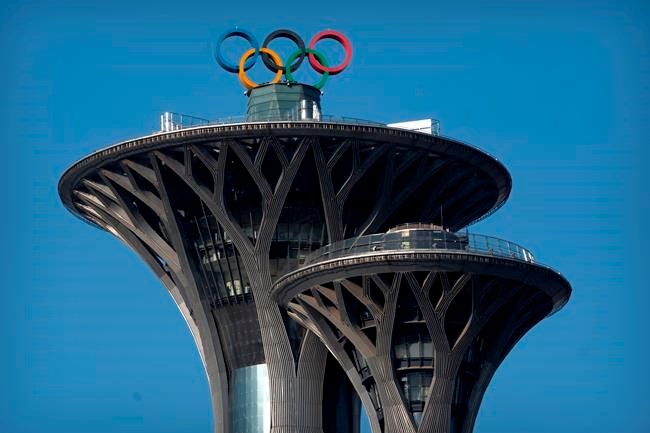TORONTO — With the dust barely settled on the recent Summer Games, a reminder came Wednesday that the next Olympiad is fast approaching.
The opening ceremonies for the 2022 Beijing Olympics are 100 days out, and the Games will likely have some similarities to Tokyo last summer.
The presence of COVID-19 restrictions will again be a constant theme. And just like Tokyo, athletes will participate after enduring dramatic changes to their training, travel and overall preparation for the Games due to the pandemic.
The Beijing Olympics will begin Feb. 4, just six months after the closing ceremony capped a Summer Games that was postponed a year because of COVID-19.
"This is a very, very quick turnaround for us," said Canadian Olympic Committee CEO David Shoemaker. "That's by and large behind the scenes but it also means that there's a group of athletes who are qualifying for the Games still that have their Olympic dreams.
"Their pursuit is to be realized in February and we have to work very quickly with them in a very short period of time to help them realize those dreams."
Events in Tokyo were held in mostly empty venues. Fans will be allowed in Beijing but spectators from outside mainland China will not be allowed to attend.
Organizers plan to use a so-called bubble setup for athletes, media, officials and Games workers to try to limit potential infections. The Olympics will run through Feb. 20 and the Paralympics are set for March 3-14.
"It's definitely crazy, it's totally crept up on us," said Canadian ski cross racer Brady Leman. "Like it is right around the corner now so it's time to get to work with the early-season World Cups.
"I'm definitely fired up and I love the pressure and the buildup to the Games and that feeling like you're building up to something bigger every race."
The Olympic flame arrived in Beijing last week after activist groups disrupted the flame lighting ceremony in Greece, accusing the International Olympic Committee of granting legitimacy to rights abuses in China.
Human rights activists have said that China’s oppression of political critics and minority groups should prompt athletes and politicians to shun the Games.
IOC president Thomas Bach has said the Olympics must be “respected as politically neutral ground.” That likely won't silence the critics, who aren't letting up with their boycott calls.
"My point of view is that sport is an incredibly powerful and important tool," Shoemaker said. "Canadian athletes can do a heck of a lot more good by showing up to these Winter Games than they would by not showing up."
Canada's Olympic and Paralympic athletes must be vaccinated to compete in Beijing. The Canadian team was over 95 per cent fully vaccinated in Tokyo.
Gracenote, an international data analytics company, is forecasting 21 medals for Canada in Beijing: five gold, eight silver and eight bronze. Norway is pegged to lead with 25 gold medals and a total of 41 medals overall.
"The 100 days out (mark) is really stressful because it really solidifies that it's going on, we're going to Beijing, we're going to compete, the Olympics are happening," said Canadian freestyle skier Cassie Sharpe.
"It's a really exciting time and we're all just so excited to get back to an event this big and be able to compete on the world stage."
Canada won 29 medals (11-8-10) at the 2018 Olympics in Pyeongchang, South Korea.
Beijing also hosted the Summer Games in 2008.
With files from The Associated Press. This report by The Canadian Press was first published Oct. 27, 2021.
Follow @GregoryStrongCP on Twitter.
Gregory Strong, The Canadian Press



